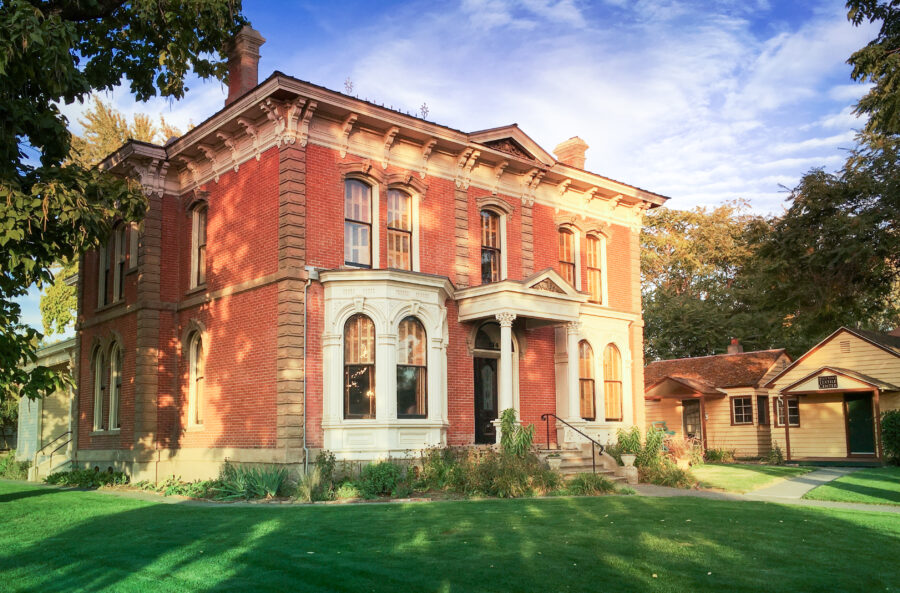by Vicki Hillhouse
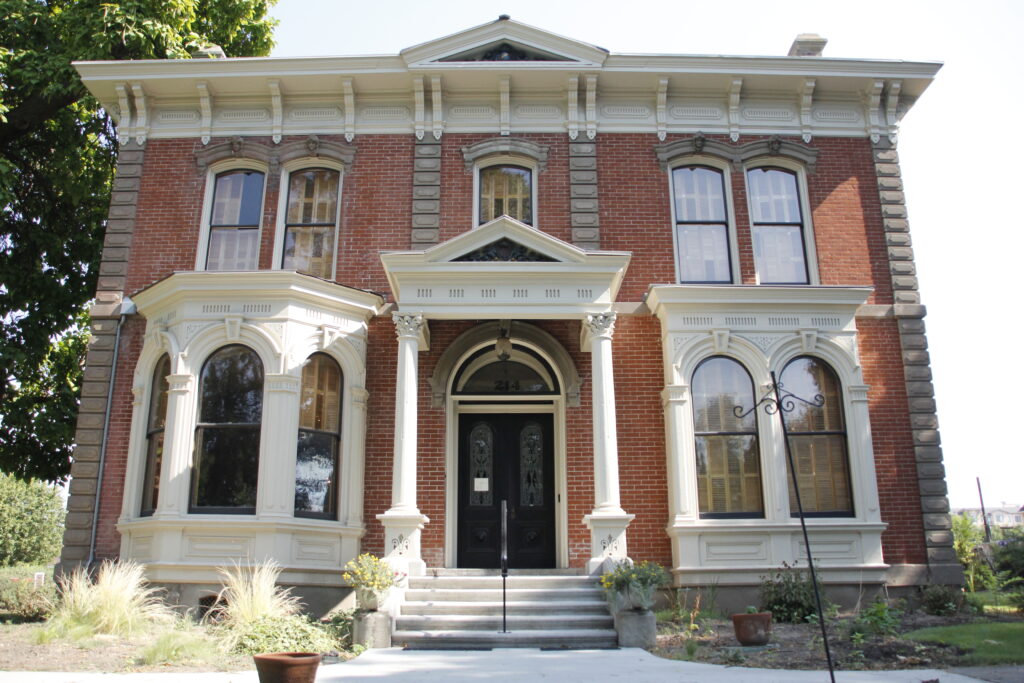
Nowhere evokes the luxury and life of the American Victorian era in Walla Walla like the Kirkman House Museum.
The 1880 brick mansion is like a time capsule at the corner of Colville and Cherry streets. Its Italiante-style architecture stands alone at the convergence of contemporary houses and the downtown commercial district where William Kirkman — the home’s patriarchal namesake — was an influential businessman and civic leader.
The museum, 214 N. Colville St., welcomes visitors 10 a.m.-2 p.m. Friday through Sunday. It also offers special events and exhibits throughout the year.
Park off the street along Colville and Cherry and plan at least an hour to wander through the only home left of its kind in Walla Walla. Its collection of furnishings and 19th century heirlooms include an 1881 square grand piano and an Edison cylinder phonograph. Many of the artifacts were donated by Kirkman family descendants, some of whom remain in Walla Walla.
The museum offers a glimpse into the life of immigrants William and his wife, Isabella Potts Kirkman, and their rise to fortune, society and public service in America’s Wild West.
Painstakingly restored and furnished, the home is the picture of opulence and craftsmanship. The original hand-cut parquet floor greets visitors at the entry. Significant family pieces span the home’s two stories, including the piano gifted to then-8-year-old daughter Fanny Mae, her and her mother’s bedroom furniture sets, a mirror above the parlor fireplace and a bronze newel post lamp — the only light piece from the original home. Isabella’s wedding ring, chairs, William’s desk and a painting over the piano are also original pieces.
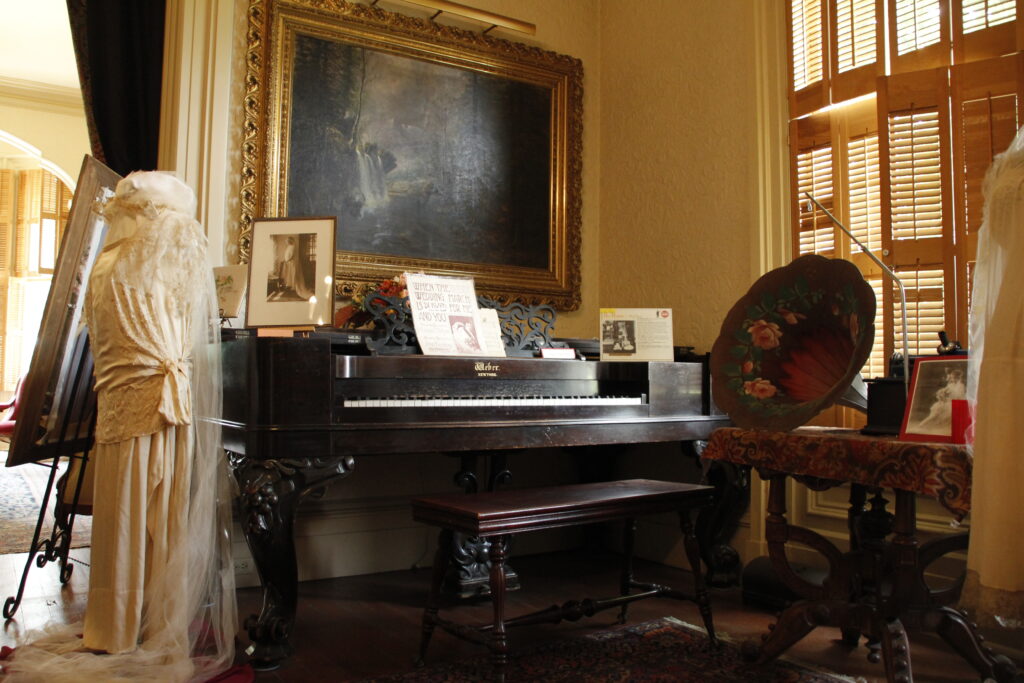
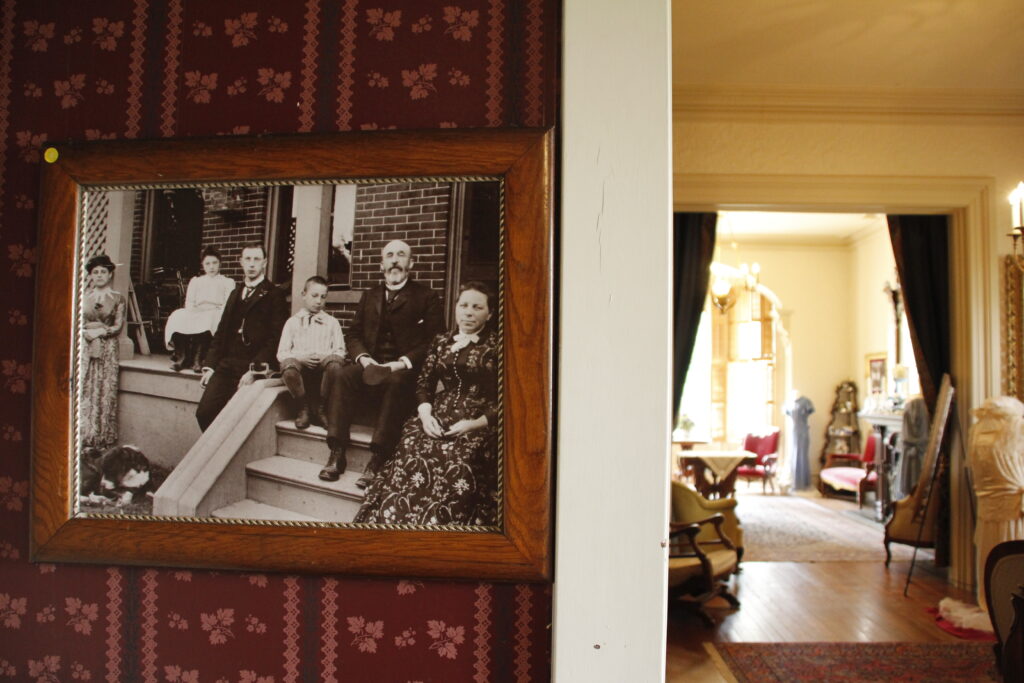
William lived just two decades in Walla Walla before his death in 1893. He crossed the Atlantic from Ramsbottom, England, 40 years earlier and began selling textiles in the Boston area. Lured west by gold, he traveled all over the West Coast for mining. In Idaho City, Idaho, he changed focus from prospecting to selling supplies to miners. On one of many trips to San Francisco, he met Isabella, who came to the U.S. from Ballybay, Ireland.
They married and started a family in Idaho City. After the gold dried up, they eventually landed in Walla Walla in 1872.
His business ventures here included a cattle and sheep ranching empire, wheat farms, a restaurant, a clothing store and hotels. He served as a Walla Walla City Councilman and respected member of multiple boards, including for Whitman College, where their children graduated.
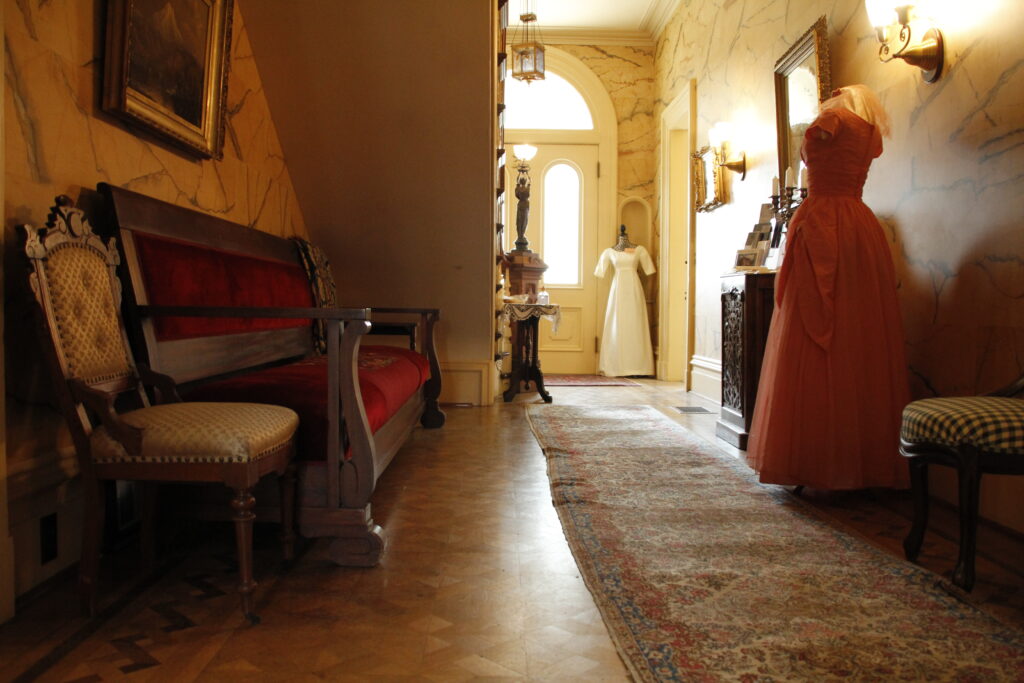
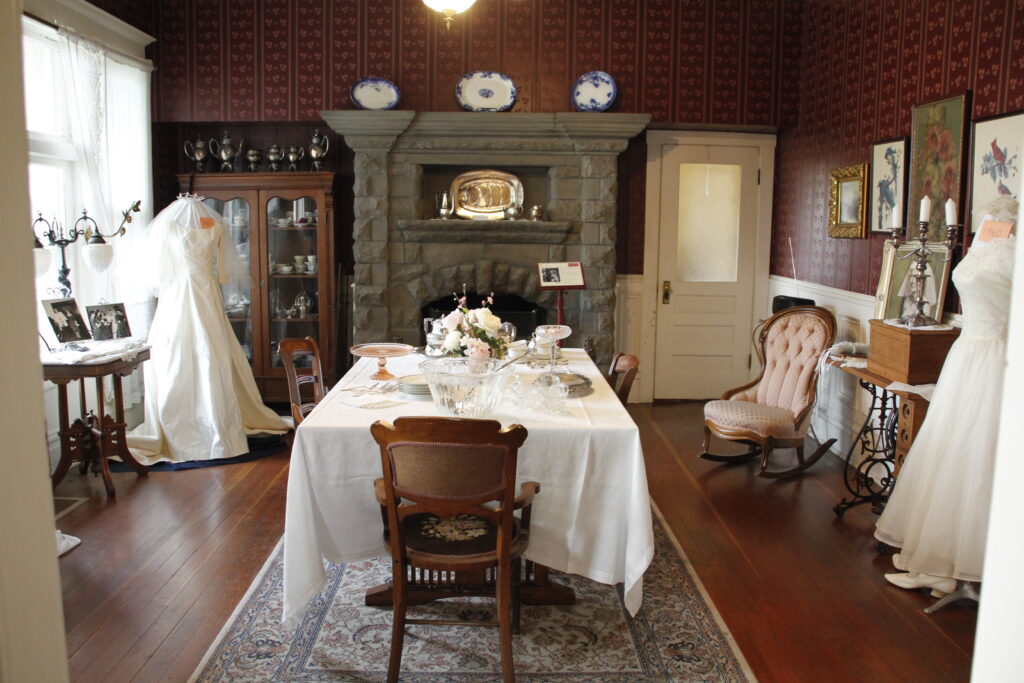
Isabella focused on running her home and raising her children. She gave birth to 10 children, but just four made it to adulthood. Active in the First Congregational Church and the Women’s Club of Walla Walla, she was a consummate hostess and entertainer.
After the Kirkmans, the property has had several owners. It was used by Whitman College as a dormitory for male students and subsequently operated as apartments for about 50 years. It became a rescue project for a nonprofit rooted in development and restoration of historic buildings.
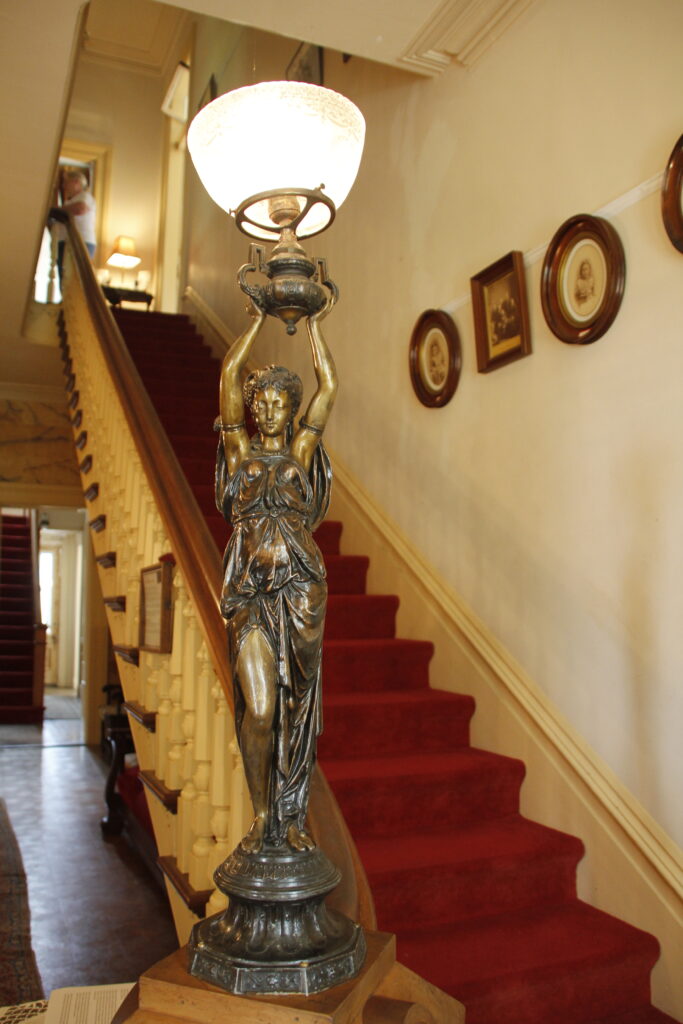
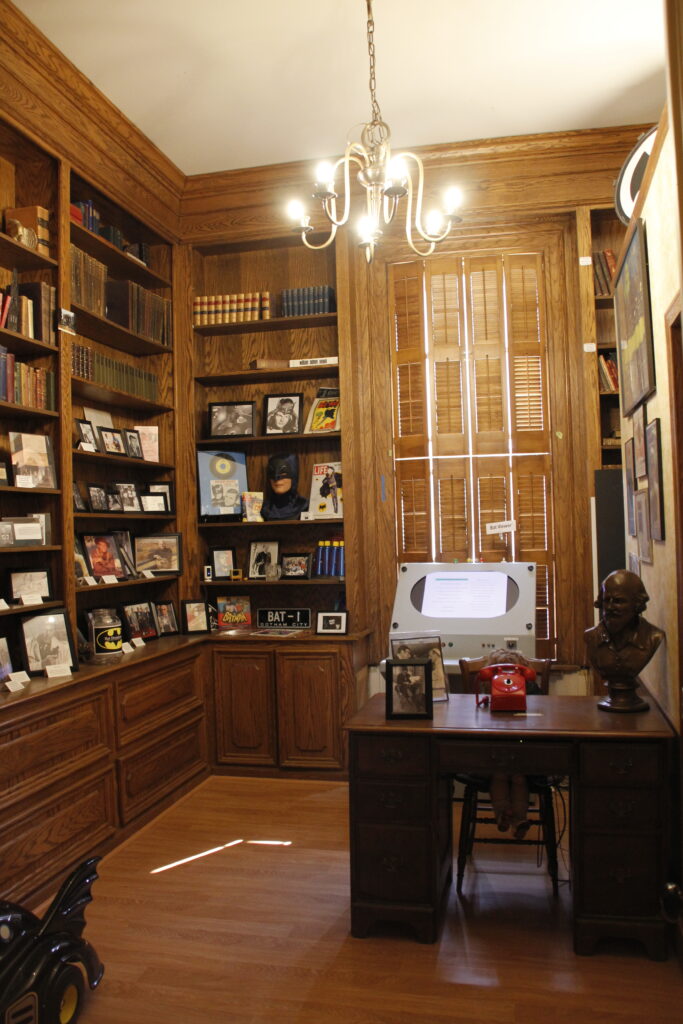
Preservation of the home-turned-museum is a decades-long labor of love loaded with twists. The latest: Tucked beyond the mansion’s stairs, a room has been dedicated to a permanent exhibit celebrating the late Adam West, the local son who portrayed the caped crusader in the 1960s “Batman” television series, along with many other characters.
The space is one of many to learn about Walla Walla’s rich history and the people who helped lay the foundation for what it is today.


